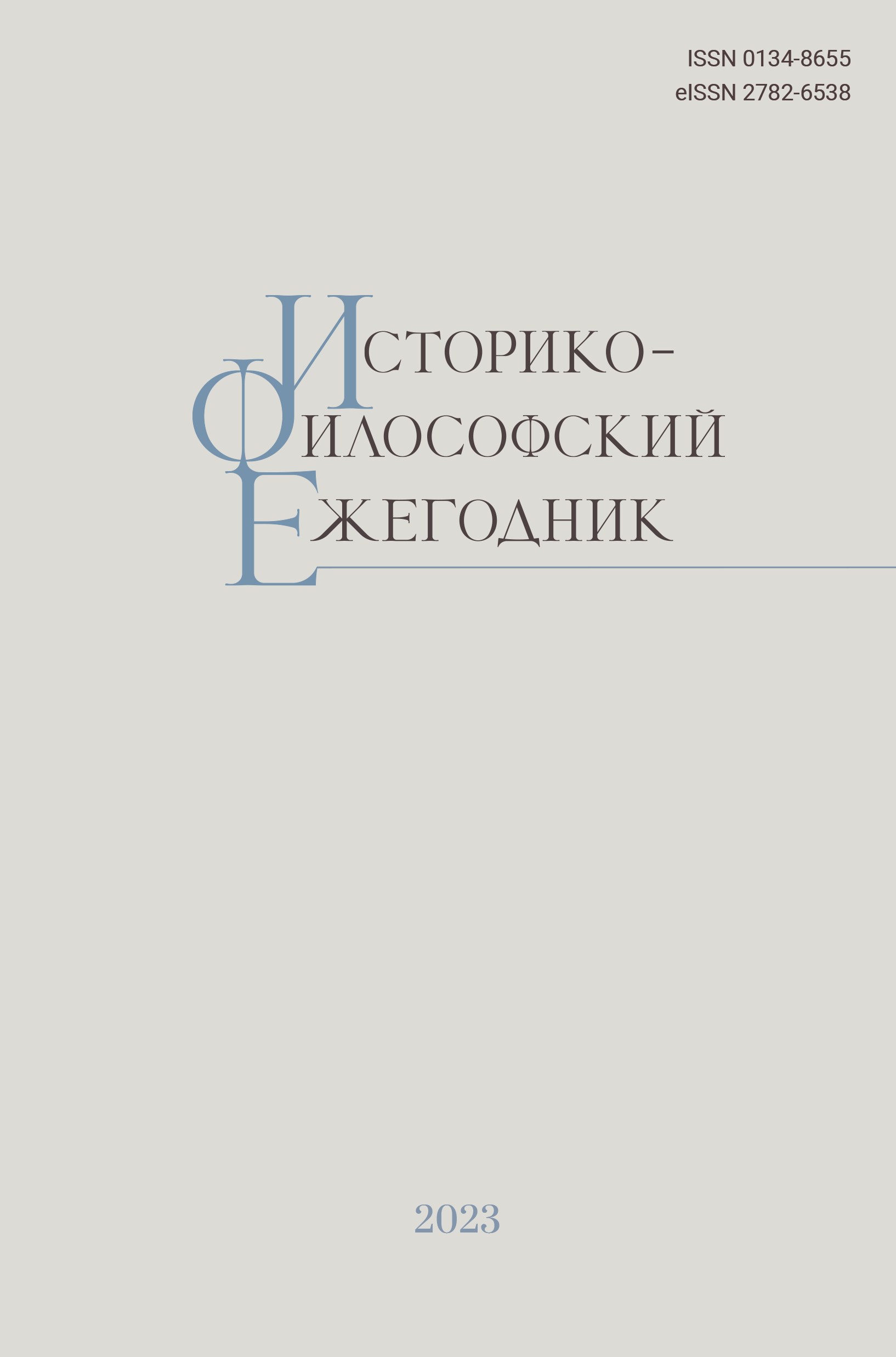Ideology. Existentialism. Phenomenology
Keywords:
Husserl, Heidegger, phenomenology, existentialism, Marxism, ideology, rationalism, irrationalism, Soviet philosophyAbstract
The article deals with the reception of phenomenology and existentialism in Soviet philosophy in the 1940–60-s. Compared to the reception of the early 20th century, acquaintance with the ideas of the main representatives of German phenomenology takes place in a much less favorable environment: it is heavily burdened by the requirements of the ideological struggle. Additionaly, phenomenology is being understood through the ideas of existentialism, a completely different type of philosophy. Mistakenly considering existentialism as a natural consequence of Husserl's phenomenology, Soviet researchers for a long time reinforce suspicions of the irrationality of phenomenology itself as well. Typical for the 40-50s the model of perception of phenomenology as Husserlianism prevails in the Soviet Union for several more decades, laying formidable obstacles to the study of the phenomenological movement. The ambiguity of the thematic area of what phenomenology should refer to led to ambiguity also in determining the nature of the philosophical program denoted by this name, as well as those specific researchers who contributed to its development. The article offers a new perspective on this story.

